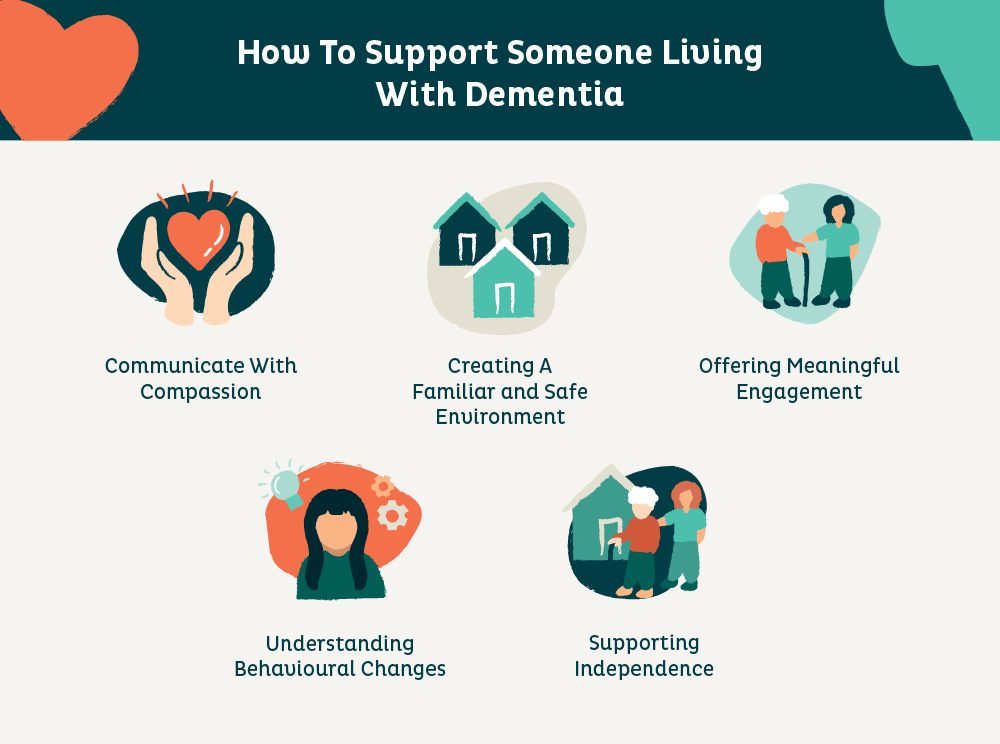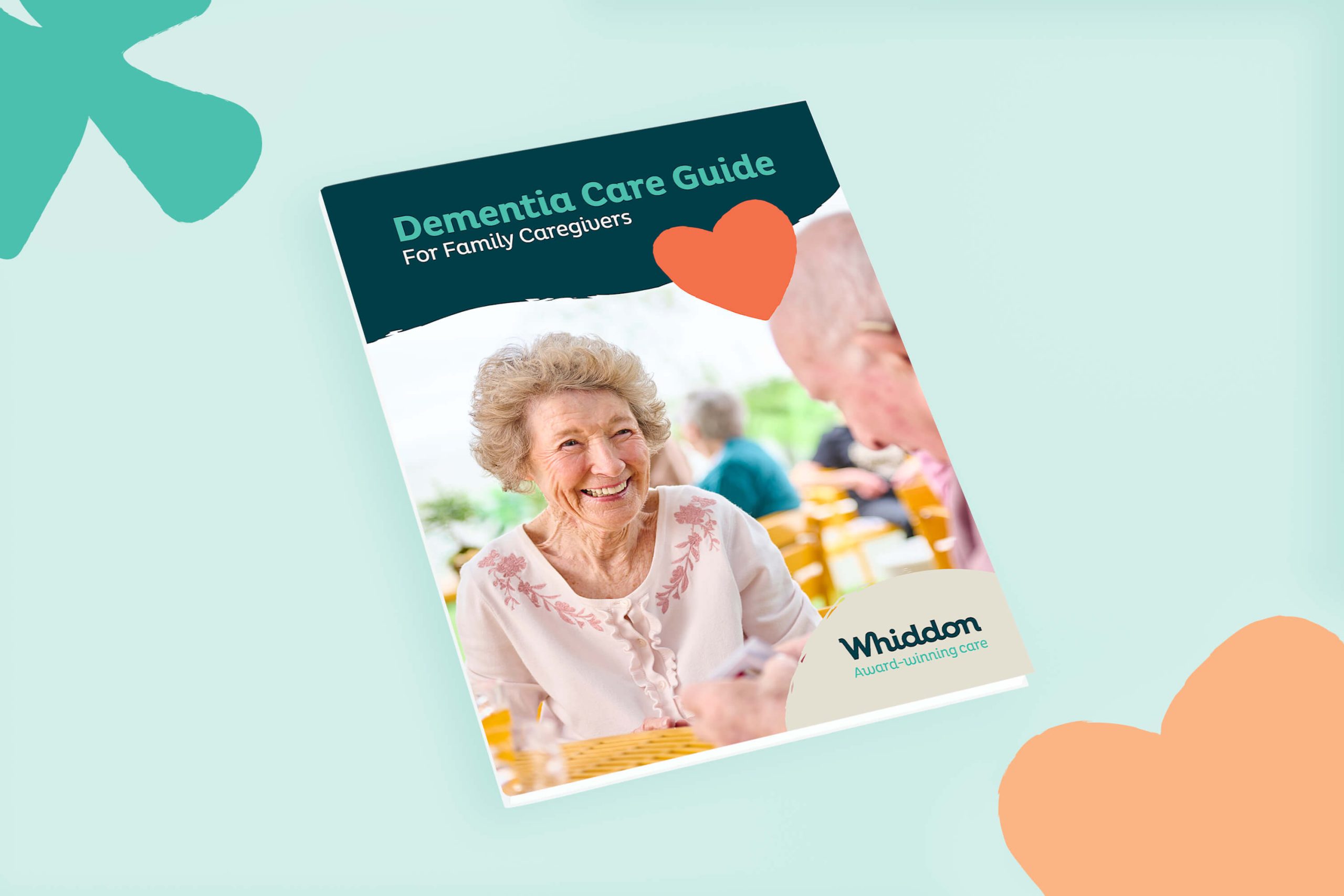
How To Support Someone Living With Dementia
Supporting a loved one who is living with dementia can feel overwhelming at times, but with the right strategies and understanding, you can create a more supportive and enriching environment for their wellbeing.
At Whiddon, we’ve seen how compassionate, personalised care can transform the lives of people living with dementia. Here are some essential tips to help you offer the best support possible.

1. Communicate With Compassion
Clear and kind communication is key when supporting someone with dementia. As their cognitive abilities change, they may find it difficult to follow conversations. Speak slowly, use simple sentences, and be patient while they process your words.
Visual cues, such as showing an object or hand gestures can help them stay engaged. Empathy and a calm tone make communication much smoother and less stressful.
2. A Familiar and Safe Environment
A stable environment helps reduce confusion and anxiety for those living with dementia. At Whiddon, we design our care environments to be safe, structured, and comforting. Routines help anchor a person’s day, and personalising spaces with meaningful items—like family photos or familiar objects—helps create a sense of home.
Removing potential hazards, such as loose rugs or sharp objects, is also essential in preventing accidents. Encouraging your loved one to participate in their daily routine, like helping to set the table or arranging flowers, can also offer a sense of accomplishment and maintain independence.
3. Meaningful Engagement
The most meaningful activity for a person living with dementia is personal connection or relationships. Every human being has a fundamental, innate need to be seen and heard, to be recognized, to belong and matter, and to have their personhood cared for. We all need to be in a relationship. We all need intimacy and connection.
Cognitive capacity does not impact relationships, interpersonal connection or unconditional regard. So, when a person is diagnosed with dementia, we begin to withdraw from interpersonal connection by treating them as a body with physical needs, but not emotional and spiritual needs.
Engaging in hobbies and activities that bring joy is crucial for maintaining emotional and mental wellbeing. Activities like listening to music, painting, or light gardening can offer mental stimulation and provide a sense of purpose.
At Whiddon, our dementia care approach involves creative ageing programs, where residents are encouraged to participate in activities like “Chat, Stories & Tea“—a program that combines cognitive stimulation with social engagement.
4. Understanding Behavioural Changes
It’s common for people living with dementia to experience behavioural changes such as agitation, confusion, or even aggression. These behaviours are considered communication of unmet needs – a way for them to communicate pain, fear or frustration, hunger, tiredness – whatever is making them unhappy which they are unable to express.
It’s important to remain calm and patient during these moments. Ensure they are pain-free and feel safe.
Our care staff are trained to recognise these underlying causes and to minimise stress. Soft music, familiar smells, or a quiet walk can reduce anxiety and help them feel more secure.
5. Supporting Independence
Supporting independence, even in small ways, can help your loved one feel valued and maintain their dignity. At Whiddon, we focus on adaptive strategies that empower individuals to manage tasks on their own wherever possible. Simple tools, like using visual reminders or breaking tasks into smaller steps, can allow someone to navigate their day with more confidence.
Encouraging autonomy helps improve their self-esteem and makes them feel more in control of their environment, whether it’s choosing their clothes or deciding on a meal.
Finding Support When You Need It
We understand that caring for a loved one with dementia can sometimes require seeking assistance. At Whiddon, we work closely with families to provide guidance, offer respite care, and share resources to ensure you don’t feel alone in your caregiving journey.
Many of our residential homes also feature purpose-built dementia care facilities, ensuring that loved ones receive support from the right professionals.
Get in touch with our team for more information on our dementia care services.

Understanding Dementia: A Guide for Families & Carers
Dementia affects over 400,000 Australians, impacting memory, communication, and daily life. While there is no cure, the right support can help people living with dementia maintain independence and quality of life. Our free Dementia Guide is designed to help families and carers navigate the challenges, offering practical strategies and insights to support their loved ones.




